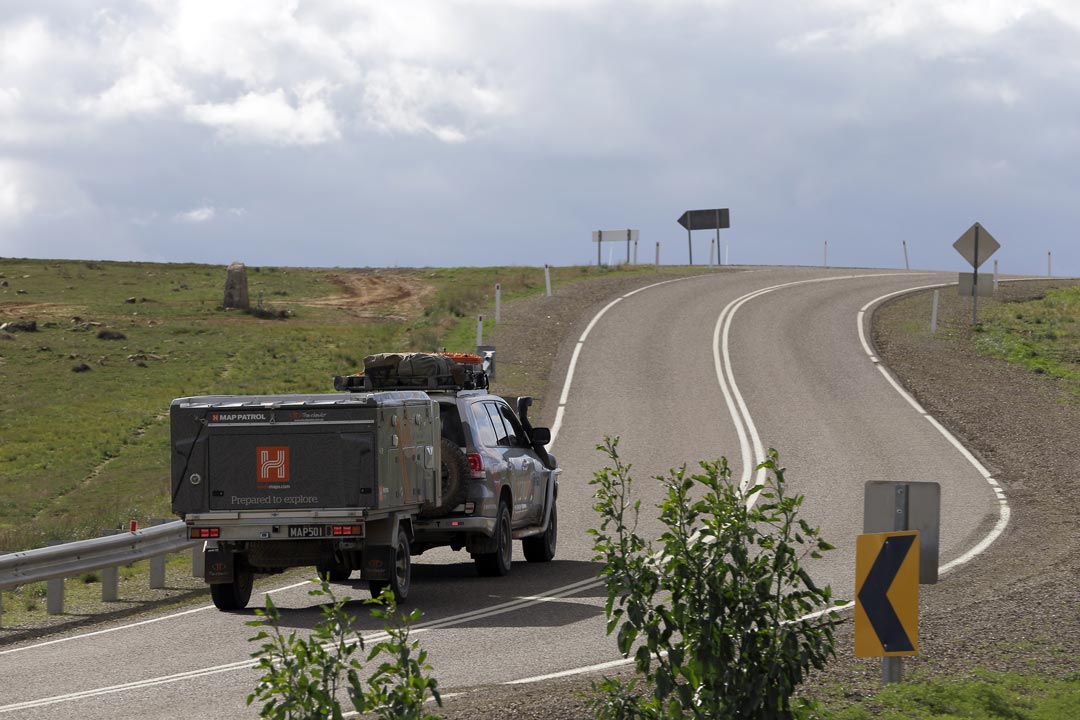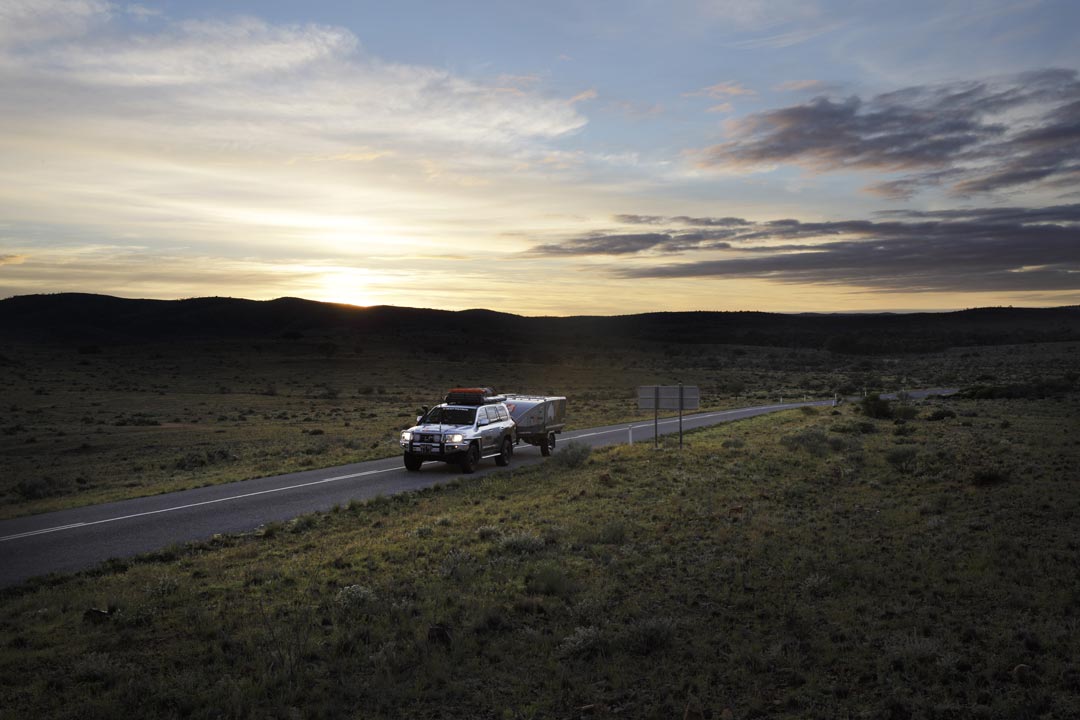Is Your Vehicle Road Trip Ready?
Whether you're heading on an interstate road trip or an extended off-road adventure, these vehicle prep tips will ensure you have a safer and happier journey.
Words by Harry Sarkissian owner of Reliance Auto Centre in Chatswood, Sydney who from has been a mechanic for over 22 years.
Australia is a vast and beautiful country and nothing quite shows off its brilliance more than a road trip. Since your vehicle is key, a little early vehicle preparation and organisation goes a long way.
Many of these points can be undertaken at home, but having a competent mechanic do the others at least two weeks before your trip will guarantee there’s ample time to fix any issues.
1. Service and Air Conditioning
Many vehicles only do short trips around town and unless it has just had a recent major service, this is your number one priority. A long trip puts additional stress on a motor so to ensure peak performance your oil, transmission, clutch, brake and coolant fluid should all be checked and changed as necessary.
Air filters and brake pads should also be checked, along with gauges tested and hoses and belts secured.
Having a professional look over your vehicle's air conditioning will also help you stay cool on your road trip, and in the often harsh Australian climate this is something you’ll be very grateful for down the road.
 2. Tyres
2. Tyres
Your tyres tie your vehicle to the road. On a long journey tyres heat up and the tread also wears down more quickly. If your treads are less than 2.5mm deep it would be wise to replace them to ensure adequate traction in all weather.
Check there are no tears or side-wall bulges. Your ideal tyre pressure can usually be found on the sticker of the driver’s door jam or listed in the owner’s manual. The figure on the side of the tyre is the maximum, and must not be exceeded. Also, don't forget to check your spare!
3. Battery, Lights, Wipers, Ignition
Changing bulbs, fuses and wipers can be time consuming, so don't leave this to the last minute. Test and replace where necessary and carry at least one spare for each on the trip.
Headlight alignment is also important, as poor alignment will reduce visibility and safety while driving at night, especially on unlit roads. Make sure there are no cracks in the windscreen so your visibility won't be hindered in any way.
4. Insurance, Registration, License
Place a copy of your insurance and registration papers in the glove box, or inside the vehicle’s manual, so they’re always handy. It’s a good idea to check expiry dates before heading off to see that you’re properly covered from start to finish.
 5. Cleaning
5. Cleaning
Clearing your vehicle of unnecessary items will reduce both clutter and stress. Extra weight reduces a vehicle's efficiency, so it’s definitely worth taking the time to organise your vehicle so you’re only carrying what you need.
Keep a supply of plastic bags handy so any rubbish created on the way can be easily kept and disposed of.
While your vehicle may get dirty on the road trip, washing and waxing it before you depart will not only provide clearer visibility, but it will protect your duco from road grime and dust build-up.
6. Emergency Kit
Now your vehicle is in peak condition, add items that will provide peace of mind while on the road.
At minimum your emergency kit should include: a puncture repair kit or tyre sealant, jumper cables, flashlight, duct tape, screwdrivers, pliers, an adjustable spanner, or multipurpose tool, knife, flares, a medical kit and fire extinguisher, as well as extra water.
7. Plan Breaks
Your trip should be fun, so where possible drive early in the morning or later in the evening to avoid major traffic hassles. Plan regular breaks for refreshments, fuel, restroom stops, for stretching your legs and enjoying your surroundings.
Breaks are also a great opportunity to experience the places left out of the guide books — you never know what gems can be found where you least expect them!
8. Staying Charged and On Track
Modern technology is wonderful. Portable GPS navigation systems not only get you to your destination, some also provide traffic alerts, alternate routes, exits and fuel stops, even direct emergency services to your location if something unexpected does happen.
But don’t forget to keep it charged! Same with your mobile phone or any other devices — 12v cigarette chargers are a must. It’s good to get into the habit of setting off every morning fully charged.
Hardcopy paper maps or guidebooks can also be a great backup to have on hand during your trip.
9. Kid and Pet Prep
Traveling with kids or pets can require a little extra careful planning — pack more snacks, water and drinks, and have some entertainment resources such as music and games up your sleeve.
A window sunshade will keep them cool, and pillows and blankets for napping will create a comfy environment.
If travelling with pets ensure they have their own clean space to sleep. If they are not used to being in the vehicle for long periods, it’s recommended they are fed a few hours before heading off, just in case they suffer from car sickness.
10. Pack Smart
A vehicle's total load capacity for passengers and cargo is printed on the driver’s door jam. Pack items in boxes or bags and keep necessary items at the boot opening to avoid having to unpack everything. A rooftop box significantly affects fuel economy, so place only light items here to avoid handling difficulties or a possible rollover.
Have a vehicle rental and towing company’s details handy in case something goes wrong and remember automobile club membership is the perfect backup plan.
Now with all that ticked off, go and enjoy a safe and exciting Australian road trip!









0 comments